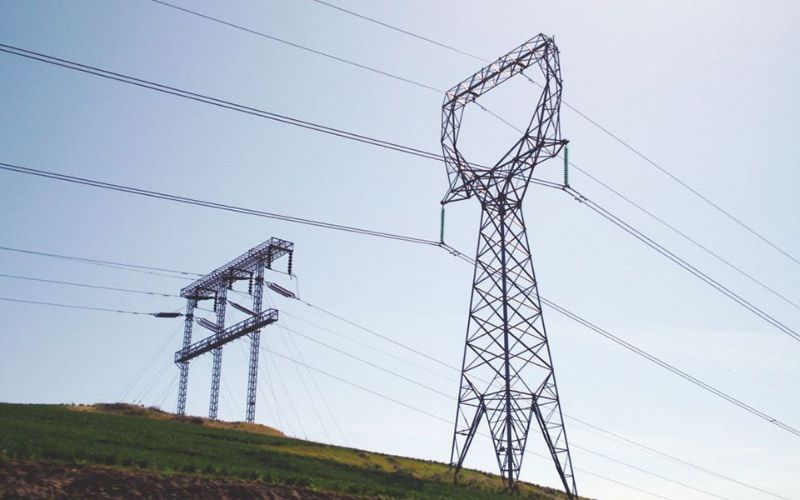India is implementing one of the world’s largest Battery Energy Storage System (BESS) programs, targeting a capacity of 43 GWh. This initiative is supported under the Ministry of Power’s Viability Gap Funding (VGF) scheme, with a financial outlay of INR 9,160 crore. To encourage faster deployment, Inter-State Transmission System (ISTS) charges have been fully waived for BESS projects commissioned by June 2028, as well as for Pumped Storage Projects (PSPs) where construction is awarded by the same deadline.
Aug 06, 2025

The Ministry of Power held a high-level Consultative Committee meeting on 4th August 2025, chaired by Union Minister of Power and Housing Affairs Shri Manohar Lal.
The meeting was attended by Sh. Shripad Yesso Naik, Minister of State of the Ministry of Power and New & Renewable Energy, Members of the Consultative Committee on Power from Lok Sabha and Rajya Sabha, senior officials from the Ministry, CPSUs, and experts from the Central Electricity Authority (CEA) to deliberate on India’s energy storage roadmap and future energy security.
Watch: Top Cable Companies in India
The distinguished participants of the collectively deliberated on specific challenges being faced in the power sector and to explore potential solutions for helping in bringing down the variability of generation in RE sources, improve grid stability, enable energy/ peak shifting, and provide ancillary support services enabling larger renewable energy integration.
The Union Minister of Power in his address mentioned that India is committed to reduce emissions intensity of its GDP by 45 percent by 2030 from 2005 level, and achieve 50 percent cumulative installed capacity from non-fossil fuel-based energy resources by 2030.
He remarked that RE should be promoted coupled with energy storage systems in order to ensure reliability of supply of power, for storing excess energy available from RE sources to be used at other times of the day. He mentioned that the Ministry of Power and New & Renewable Energy has taken various policy initiatives to promote energy storage system, slaying emphasis on ensuring resource adequacy and necessary power generation capacity tie-ups.
He emphasized that the ministry has one of the largest programs on BESS worldwide, 43 GWh battery energy storage systems (BESS), supported under Viability Gap Funding Scheme (VGF) of the Ministry of Power. Financial support of INR 9,160 crore has been earmarked for BESS VGF schemes. The Inter-State Transmission System (ISTS) charges have been fully waived for BESS projects commissioning by June 2028 and PSP projects for which construction was awarded by June 2028.
It was mentioned that in terms of Hydro PSP (Pumped Storage Plant), India already has an installed capacity of approx. 6.4 GW. India has a PSP potential of more than 200 GW. At present, approx. 8 GW is under construction and 61 GW is in various stages of planning and development.
The Members of the Consultative Committee for the Ministry of Power offered several valuable suggestions regarding various initiatives and schemes on BESS. They praised the VGF scheme and especially the role of smart meters in improving the services and reducing the losses. They praised the role of VGF scheme in providing reliability of supply of power, for storing excess energy available from RE sources to be used at other times of the day, to consumers through execution of distribution infrastructure works.
The Members of the Consultative Committee emphasized on the importance of ensuring a stable and high-quality power supply for consumers.
Also Read: Delton Cables Expands Capacity with New Plant to Meet Rising Telecom Demand
In his closing remarks, the Minister of State of Power and New & Renewable Energy highlighted India’s remarkable achievement of reaching 50% of installed electricity capacity from non-fossil fuel sources—five years ahead of the 2030 target. This milestone underscores India’s deep commitment to sustainable development under the leadership of Hon’ble Prime Minister Shri Narendra Modi.
He emphasized that while renewable energy (RE) sources like solar and wind have driven this transition, the backbone of a reliable, flexible, and modern power system will increasingly rely on Energy Storage Systems (ESS). The Minister of State reiterated the multifaceted role of ESS, not just in generation but across the energy value chain—from transmission and distribution to ancillary services and EV integration. He called on all stakeholders to continue their support for building a resilient, affordable, and sustainable energy future for India.




